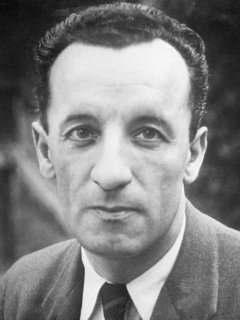
Publication details
Publisher: Springer
Place: Berlin
Year: 2004
Pages: 135-158
Series: Contributions to Phenomenology
ISBN (Hardback): 9789048167272
Full citation:
, "Intersubjectivity and phenomenology of the other", in: Space, time, and culture, Berlin, Springer, 2004


Intersubjectivity and phenomenology of the other
Merleau-Ponty's contribution
pp. 135-158
in: David Carr, Chan-Fai Cheung (eds), Space, time, and culture, Berlin, Springer, 2004Abstract
It is now a well-known fact that one of Merleau-Ponty's basic and enduring contributions to the phenomenological movement resides in his detailed thematization of the body proper. In contrast to both Husserl's Ideen I and Heidegger's Sein und Zeit, in the Phénoménologie de la perception the phenomenal field is structured through and through by the carnal subject, to the effect that for Merleau-Ponty corporeity plays a pivotal role not only in the constitution of the perceptual world but in that of the cultural world too. By adopting his own genetico-phenomenological approach which draws upon meticulous observations from child psychology followed by careful analyses, Merleau-Ponty succeeds in showing that the cultural world has a carnal basis: It is first of all an intersubjective world composed of a plurality of anonymous subjects, i.e. subjects which are at the same time a self and an other. It is upon this primordial level of intersubjectivity that a second level of intersubjectivity—intersubjectivity of the intellectual consciousnesses—emerges. The latter is composed of distinctive self-conscious individualities. One of Merleau-Ponty's greatest merits consists in showing that it is only at the second level of intersubjectivity that the problem of intellectual solipsism (in the manner of Hume) or existential solipsism (in the manner of Heidegger in Being and Time) arises. The pages below propose to demonstrate Merleau-Ponty's specific contribution to the explication and articulation of these two levels of intersubjectivity. If this attempt is successful, it can serve to arbitrate the dispute between the social scientist, to whom intersubjectivity is a first evidence, and the philosopher, to whom solipsism is a recurrent problem.
Cited authors
Publication details
Publisher: Springer
Place: Berlin
Year: 2004
Pages: 135-158
Series: Contributions to Phenomenology
ISBN (Hardback): 9789048167272
Full citation:
, "Intersubjectivity and phenomenology of the other", in: Space, time, and culture, Berlin, Springer, 2004



